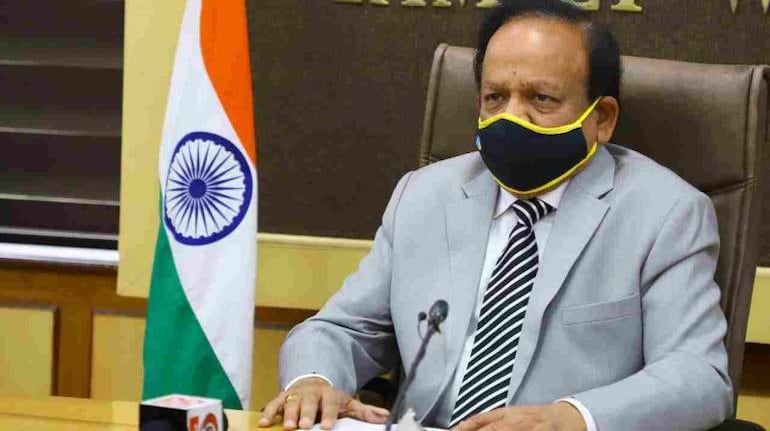



Union Health Minister Dr Harsh Vardhan took to Twitter on April 25 to clarify all aspects of India’s COVID-19 vaccination drive and called for greater degree of “shared idealism” as the country battles the second wave of the pandemic.
Explaining the Government of India’s new, liberalised vaccine procurement policy, Dr Harsh Vardhan wrote: “The government has announced a ‘Liberalised and Accelerated Phase 3 Strategy of COVID-19 Vaccination from May 1’, which makes anyone above 18 years eligible for taking the COVID-19 vaccine.”
“In any battle, time is of the greatest essence. While the dreaded disease is spreading like a tsunami, it was critical to ease the controls and allow a free hand to the state governments as well as the private sector. Hence, under the guidance of Prime Minister Narendra Modi, we decided to ease the vaccination policy norms,” he added.
The Union Health Minister then went to complain about the misinformation that is being spread about the third phase of India’s coronavirus vaccination drive and offered the following clarifications.
He said that the over 14 crore vaccine doses that have been administered by the states so far along with an additional stock of one crore vaccines were all provided by the Centre to the states for free.
As per India’s new COVID-19 vaccination policy, even after the launch of the third phase of vaccination starting 1st of May 2021, the Government of India’s pricing will continue for the free distribution bracket. Just like before, the Centre will continue to give vaccine doses from its 50 percent quota to the states and union territories for free. These vaccines will continue to be administered by the states and UTs.
Clearing doubts on ‘balance 50 percent quota’, Dr Vardhan explained that the remaining 50 percent quota grants flexibility for states. “Many states had requested that the vaccination process be opened up for them. Now, this ‘balance 50 percent quota’ shall give them the freedom to vaccinate groups that they deem as priority… After we received requests from nearly all states to liberalise the vaccine distribution policy and pass on the control to the states, we decided to go ahead,” he said.
He added: “The balance 50 percent quota is also open for corporate and private sector to pool in their resources so that the combined effort of Team India can be deployed to vaccinate every adult in the earliest possible time.”
The Union Health Minister further said: “To reiterate, the Central Government does not give vaccines directly to anyone. The 50 percent quota, that is at Government of India’s pricing, is for free distribution of vaccines and distribution of all of this will be done through the states only. Hence the allegation that Centre is getting it cheap and States are not, is patently false.”
Follow our coverage of the coronavirus crisis here
Discover the latest Business News, Sensex, and Nifty updates. Obtain Personal Finance insights, tax queries, and expert opinions on Moneycontrol or download the Moneycontrol App to stay updated!
Find the best of Al News in one place, specially curated for you every weekend.
Stay on top of the latest tech trends and biggest startup news.